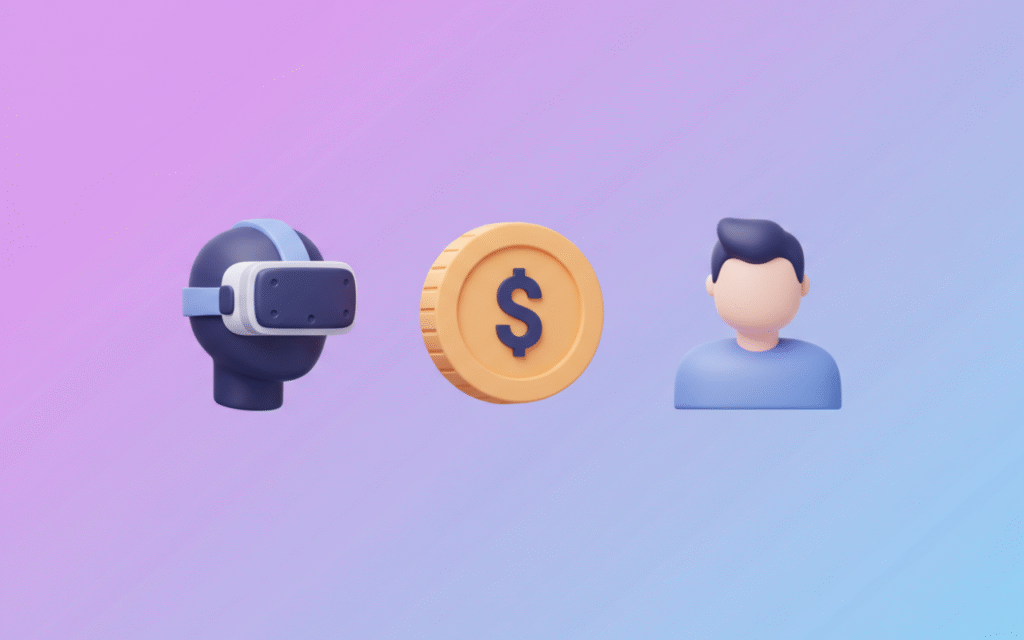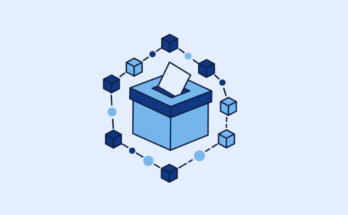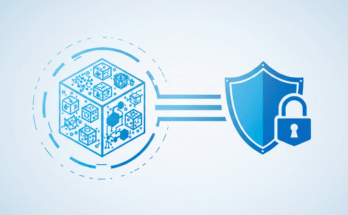The Metaverse is an immersive digital environment designed to offer top of the line gaming experiences, integrating various features and advanced technologies to create a virtual space that appears real.
Metaverse Fashion Week provides users with an opportunity to earn non-fungible tokens (NFTs) and trade them in its marketplace for real world products. Furthermore, the platform supports social interaction as well as hosting events such as Metaverse Fashion Week.

1. Voxels
The metaverse is an alternate universe in which people from the real world can participate in games and activities virtually. It has become well-known through popular sci-fi movies such as Tron and Ready Player One.
Voxels is one of the leading metaverse cryptocurrency platforms, combining gaming and virtual reality. Users can create, build, trade, and monetize virtual land through this platform. Voxels also provides immersive experiences such as concerts and gamified brand experiences from major brands like Adidas, Snoop Dogg and The Walking Dead. Additionally providing no-code tools to developers.
2. The Sandbox
The Sandbox is a metaverse platform powered by blockchain technology and non-fungible tokens (NFTs). Users are able to leverage these assets to create, exchange and monetize digital assets. Partnered with major brands such as Paris Hilton, Deadmau5 and Adidas for immersive user experiences.
Pixowl co-founders Arthur Madrid and Sebastien Borget created The Sandbox as a 3D virtual world that offers users tools to build games and experiences, as well as customize their avatars with various hairstyles, skin and hair colors and clothing options from tops, bottoms and shoes.
3. Upland
Upland stands apart from most blockchain games by providing true ownership over virtual properties, and trading them between players. Players using UPX tokens can buy real buildings or collectibles mapped onto actual cities for use as currency in Upland’s play to own game mode.
The game offers multiple earning opportunities, from gamified UPX earnings, treasure hunts and social activities to passive monthly token earnings as you level up and achieve milestones. Upland is supported by an impressive list of investors, such as EOS Network Ventures, C3 Venture Capital and Animoca Brands in addition to being part of OMA3 itself.
4. Roblox
Roblox is one of the world’s premier gaming platforms, boasting popular titles like Adopt Me! and Brookhaven RP that draw millions of players each month. Furthermore, its innovative economic models offer both game creators and users significant value.
This platform offers an abundance of immersive experiences, from parkour-style challenges to virtual hangout spaces. Additionally, players can create and customize avatars in order to more easily express themselves and express their identity.
Big brands such as Nike and Gucci are taking note, creating permanent worlds within the metaverse to show off their products and host events, an indicator of its ever-increasing popularity as an entertainment medium.
5. Decentraland
Decentraland is an online platform that enables users to construct virtual worlds using its NFT virtual currency called MANA. Players can create avatars that they can customize, interact with others via voice chat and messaging, as well as attend concerts by popular artists such as Ice Cube or Trevor Jones.
Decentraland’s metaverse is an exciting new development in virtual property ownership that is owned collectively through its DAO (Decentralized Autonomous Organization). Its unique design puts control back in the hands of players, who control everything from land ownership and assets ownership, governance and governance of Decentraland itself. This development marks a promising step toward more comprehensive virtual realities where ownership of virtual value can be transferred back into reality.
6. Horizon Worlds
Meta strives to become the hub for social and immersive experience that everyone expects, connecting worlds operated by other companies in order to do this. An avatar created on Roblox could theoretically move seamlessly to Horizon Worlds to chat with their friends. However, such interoperability doesn’t currently exist.
Horizon Worlds’ Creator Program allows users to develop their own worlds on its platform and share them with regular users for navigation. Users with technical abilities can upload them for other to access as part of this effort to foster socialization.
7. American Idol VR
X World Games’ groundbreaking project venture provides fans with their very first VR crypto idol group. Leveraging Theta Network as its platform, fans are given NFTs to shape the future careers of their idols as well as reap long-term rewards for supporting them.
Dream Idols are virtual girls designed using motion capture and VR technology, rendered at 4K resolution to ensure optimal performance and accessible via VR devices such as Oculus Rift, Pico VR headset or Vive virtual reality headset.
LTN Flex remote production technology will be employed for this year’s show, to ensure broadcast-grade reliability by mitigating unreliable home internet connections and enable American Idol to stream a live virtual concert to millions of viewers around the globe.
8. Arena Clash
This gaming-focused crypto project seeks to revolutionize the gaming industry with an innovative consensus mechanism, Proof of Gaming (PoG). Gamers will no longer need powerful graphics processing units for mining purposes as rewards will be distributed based on how long they spend playing immersive games on this platform that also offers in-depth analytics that help develop skills further.
Netmarble has introduced some unique innovations like two-versus-two player mode and Trading feature to attempt to rival Clash Royale. However, these cannot compensate for its flawed gameplay design and core loop. Arena Clash is using blockchain technology to build a metaverse in which players can collect, advance and defend their homelands while taking part in decentralized autonomous organizations (DAO) governance models.
9. Interdimensional
A metaverse that’s successful requires providing connectivity and infrastructure that supports interaction among virtual worlds. Otherwise it would act like an isolated island that couldn’t communicate with its environment. Interdimensional stands apart from traditional gaming platforms by offering its users digital assets known as NFTs that can be traded through a decentralized and secure marketplace, creating a vibrant virtual economy while encouraging content production.
Furthermore, this platform provides an immersive VR experience and allows its users to own virtual land parcels. Perfect for building games, organizing concerts or hosting events, which are protected by blockchain technology to guarantee decentralized ownership and transparent transactions.



![[Tesla Stock vs. Bitcoin] Which One Leads the Market in 2025?](https://mineatech.com/wp-content/uploads/2025/06/tesla-stock-vs-bitcoin-which-one-leads-the-market-in-2025-348x215.png)